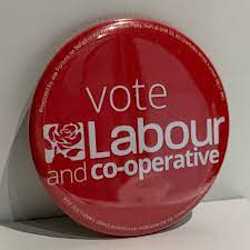The left needs an economic re-set, a more radical aspiration of empowerment, says CHRIS WILSON. Can co-operatives help put the ‘social’ back into socialism?
One of the surprising things about my experience of Labour and trade union activism is how narrowly the word ‘socialism’ is defined. Time and again, I have met good people who (still) seem to think it is only about nationalisation, and only ever was.
Maybe it is a legacy of the glory days of Clement Attlee. But even that great man believed not more than 20% of the British economy should be state owned, and then only the natural monopolies. He was considerably reticent about the iron and steel industry, for example, which was finally nationalised only during his second term of 1950-51.
 There is a place for state ownership, although the public sector corporation was initially a Tory, not a Labour, invention (see the history of the BBC). Its scope, though, should be limited, at most. It betrays a poverty of vision if all the left can imagine after ‘the great change’ is the same bosses as before, just paid from the public purse.
There is a place for state ownership, although the public sector corporation was initially a Tory, not a Labour, invention (see the history of the BBC). Its scope, though, should be limited, at most. It betrays a poverty of vision if all the left can imagine after ‘the great change’ is the same bosses as before, just paid from the public purse.
Many early socialists believed they were working towards a ‘co-operative commonwealth’ rather than state ownership, but somehow the movement lost sight of this democratic aspiration – no doubt due to World War One and the terrible false dawn of the Russian Revolution.
But the left should have always been asking for worker or consumer control, and worker or consumer ownership. In short, we should be focused on co-operatives and the co-operative movement.
Thankfully, it is in a healthy state. According to Co-operatives UK, the movement’s network body, 13.9 million people were members of co-ops in 2021 and there were some 7,237 independent co-ops in the country. Given their open and voluntary membership, and with equity and democracy embedded in their structures, surely these co-ops are a far more attractive model than old-style nationalised industries.
Some trade unions certainly think so – Community, Usdaw and Unison are all now affiliated or linked to the Co-operative Party, itself a model of vibrancy, dynamism and growth. And the Labour Party itself is committed to doubling the size of the co-operative sector, a radical intention that deserves wider appreciation.
Transformative
As Co-op News reported recently, Labour is committing £3.3bn over the course of the parliament for its Local Power Plan, which “would offer grants and loans to local authorities and communities to ‘create one million owners of local power.’” It is a significant and transformative goal.
 Credit Unions are also doing rather well. The Co-op Credit Union and the GMB’s Credit Union are now 25 years old, while the Oddfellows’ Unity Credit Union, to which I belong, continues to prosper. In a world where loan sharks target and oppress working class communities, these mutual bodies are worth celebrating. Indeed, what can be more radical than capital that’s democratically controlled?
Credit Unions are also doing rather well. The Co-op Credit Union and the GMB’s Credit Union are now 25 years old, while the Oddfellows’ Unity Credit Union, to which I belong, continues to prosper. In a world where loan sharks target and oppress working class communities, these mutual bodies are worth celebrating. Indeed, what can be more radical than capital that’s democratically controlled?
We need a culture of participation with workers belonging to and playing active roles in unions, co-ops and friendly societies, and with power dispersed across all of these. As a church minister, I would add faith communities too, another area where more democracy is needed.
Even the Co-op bank is slowly becoming a mutual again thanks to talks with the Coventry Building Society (one to watch). It still outscores all the rest for ethical banking, according to Christian CND, and is the only bank to recognise its own customer union, called ‘Save our Bank’, a co-op itself.
So co-operation is alive and well in many and varied forms, both industrially and politically. Of course, creating a society of co-operative ventures is challenging, especially when so many people work so hard for so long. But co-operatives and mutuals – or guild socialism as GHD Cole called it – still represents a better way.
I suspect many ILPers will agree, even if much of the wider left often seems fixated on state control, a model that risks empowering governments, not people; not the workers nor the consumers of our industries.
We need an economic re-set on the left, a more radical aspiration of empowerment. The case for co-operation can still be made. How, otherwise, do we put the ‘social’ into ‘socialism’?
—-
The Reverend Chris Wilson serves on the national executive committees of the Community Union and the Co-operative Party. He is a church minister and member of Christians on the Left. He writes in a personal capacity.
See also: ‘Cost of Living Crisis: Why We Need a New Wave of Co-operatives’ by Chris Olewicz.


